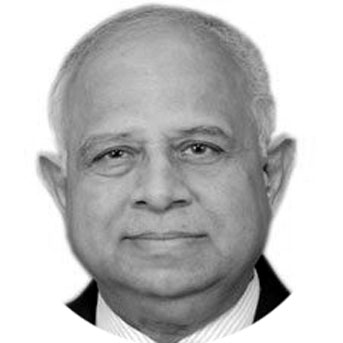Why not Khalistan ?
There is widespread suspicion among the Sikhs that the Indian Army did this to inflict maximum civilian casualties and thus demoralise the Sikhs.
Operation Blue Star had far reaching consequences, not the least being the assassination of Indian PM Indira Gandhi later in 1984 by her own trusted Sikh bodyguards.
An estimated 3000 Sikhs were killed in the subsequent anti-Sikh rioting in Delhi.
Sikh soldiers across India mutinied, many were killed and nearly 3000 soldiers were court-martialled. Dozens of Sikh officers resigned from the Armed Forces.
The Government of India attempted in 1985 to seek a political solution to the grievances of the Sikhs through the Rajiv-Longowal Accord.
The Accord—recognizing the religious, territorial and economic demands of the Sikhs that were thought to be non-negotiable under Indira Gandhi’s tenure—agreed to establish commissions and independent tribunals in order to resolve the Chandigarh issue and the river dispute, laying the basis for Akali Dal’s victory in the coming elections.
Not all the Sikhs accepted the truce. Rumours abound that during Rajiv Gandhi’s visit to Pakistan, Ms Benazir sought to appease him by instructing the then Interior Minister Aitzaz Ahsan to hand over the list of Sikhs militants in the Khalistan Movement to the Indians.
This has been denied by Aitzaz Ahsan but the news persists, especially among intelligence circles.
By the early 1990s Indian security forces had suppressed the insurgency which were indiscriminate attacks designed to cause extensive civilian casualties: derailing trains, and exploding bombs in markets, restaurants, and other civilian areas between Delhi and Punjab.
Militants assassinated many of those moderate Sikh leaders who opposed them, and sometimes killed rivals within the same militant group. As a result, Hindus left Punjab by the thousands.
Until today, the Khalistan demand has not died down. Recent reports indicate a rise in pro-Khalistan sentiments among the Sikh diaspora overseas, they are determined to revive the secessionist movement.
Some people were even spotted during the World Cup 2019 in pro-Khalistan jerseys, but were then whisked out of the stadium.
Following RSS chief Mohan Bhagwat’s speech on Dussehra 2019, during which he said India is a Hindu nation, Sikh community leaders such as Giani Harpreet Singh the Akal Takht jathedar and Gobind Singh Longowal reacted sharply.
Giani Harpreet Singh, objecting to Bhagwat’s remark, said: “When we oppose the RSS, then it is not opposition of Hindus; it should be clearly understood.
The RSS can preach Hinduism; we have no problem with that. But they should stop defining Sikhism. Sikhs have many institutions to decide who they are
. We don’t want outsiders to tell us who we are… We are not part of the Hindu nation of the RSS.”
In Pakistan where Sikhs are a tiny minority, they have had problems with Muslims over the decades.
That may have been due to the horrible memories of partition in Punjab and also because of the failure of Pakistan to provide for the necessary security, acceptance and comfort of Sikhs despite the firm determination of the Quaid to protect the minorities.
Things have become better over the years; many Sikh places of worship located in Pakistan are now very well looked after, incidentally by a former DG ISI and Islamist diehard Lt Gen (Retd) Javed Nasir when he was Chairman Evacuee Trust Property Board.
Consecutive Pakistani governments have allowed access to Indian Sikhs on the occasion of Sikh holidays.
With the restoration of the Sikh site in Kartarpur and the opening of the ‘Kartarpur Corridor’ that allows almost unrestricted access for all Indian Sikhs to their holy place Pakistan has shown a sharp change in its attitude towards Indian Sikhs that India has not reciprocated so far.
Pakistani Sikhs are unable to use the border crossing and cannot access Dera Baba Nanak on the Indian side without first obtaining an Indian visa or unless they work there.
Real progress in relations with India cannot be expected with the fascist BJP ruling the country. But Pakistan could work for ensuring the security of Pakistani Sikhs.
India’s National Security Advisor (NSA) Ajit Kumar Doval (and others) openly talk about breaking up Pakistan by fomenting trouble in Balochistan and elsewhere, repeatedly and vociferously so do some of their major TV anchors.
The Khalistan movement has far more legitimacy and there is worldwide support both within and outside India.
Pakistan should seriously look into giving the Sikh active support to have their own homeland. Why not Khalistan? —Concluded.
—The writer is a defence and security analyst.










